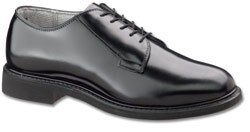-
In the Media
-
In the Media
-
In the Media

A mile in His Shoes
A story for Chicken Soup for the Soul
I spent many years of my adult life as the source of my grandfather’s shoes. My grandfather was the man in my life. My dad was a bit of an absentee father, ‘nuff said about that. But “Popa,” as I called granddad, was always there. Where I grew up in the timber country of the Pacific northwest it was Popa who taught me the names of all the trees, which plants were good to eat and which were not. He taught me how to bait a hook, build a fire, pitch a tent and shoot a rifle. And, by golly, the old man even toilet trained me, and taught me how to pee standing up in manly fashion. This is male bonding at its purest. Quite simply, Popa was a giant to me, physically, morally, and lovingly. Into his sixties he could defeat all his sons and sons-in-law at arm wrestling. He could do anything he set his mind to, and though he only went to the sixth grade, as a child I always said that he must be the smartest man in the whole world. Of course he was painfully aware that he wasn’t, but I don’t recall his ever having contradicted me.But I’m talking about shoes. All Popa’s sons and sons-in-law served in the US navy. Through them he became enamored of standard-issue navy uniform shoes. They are plain and simple with clean lines, they take a good black shine, they are durable and versatile; you can wear them with a suit, you can wear them with jeans. And to him they were the most comfortable shoes he had ever worn. Once his preference was known, all his sailor boys kept him supplied. Every year, wherever they were in the world, one of them would send Popa a brand new pair of navy shoes, size 9 1/2 D.
I grew up to be eighteen. And because of Popa I grew up to be a man. And I joined the US navy. Coincidentally, I also grew into a 9 1/2 D shoe, though I never grew into a giant. The pleasant duty then devolved upon me to keep my grandfather shod. The world beyond the fir and redwood forests proved huge and fascinating, and I consumed it like a thirsty man consuming water. The years and the voyages would take me and keep me away from home for longer than I ever imagined. But every year Popa received his navy shoes from me.
It became a rite of the seasons. There was Christmas, there was Spring, there was Thanksgiving, and there was navy shoes, sent from far away. Of course they all came from the same American manufacturer, but I always purchased them from the ship’s store, and posted them from exotic ports of call. In this way Popa, and I, felt that he was walking with me as I explored the wide world. He felt a part of my adventures. He would always wear the shoes to church and tell folks that, “He sent me these from Singapore,” or perhaps from Perth or Manila. He would wear them into town when he and grandma would go to the general store to, “do our trading,” and he would boast about the shoes’ quality and remark on the long distance they had come. I would enclose a couple of postcards in the shoebox, just for good meas ure, so he could see from where I had sent them. “That’s where my grandson is serving,” he’d proudly say as he showed them to folks. I did this every year, without fail. After all, he had never failed me.
He wrote to me once that he was pleased to see that the estimable navy shoes had gotten even better than they had been since he first discovered them. “They used to pinch my feet a bit for the first day or so,” he said. “Sometimes they even gave me a little blister. But the new ones they’re making now fit me just fine right away. That’s a blessing at my age when sore feet can really be a pain.” Of course, as a sailor who was also wearing the navy shoes, I knew just what he meant. And the truth was that I would wear the shoes I sent him for a day or so, about a mile’s worth, until my co-equal 9 1/2 D feet had walked the blisters out. Then I gave them a good navy spit-shine and packed them up with the postcards. Popa’s footprints on the road of my life were so numerous that those little blisters never really hurt.
And so it went. Then one day Popa died. It was a long way to go to get to the funeral, up there in the timber country, but I made it the day before. That evening I went to the chapel to view the body and say my good-byes. I found that the undertakers had laid him out very nicely, and he looked a fine figure of a man. And Grandma had seen him dressed in his favorite outfit, what he called his “Johnnie Carson suit.” And that’s what he wore next day when we closed the lid to his coffin and sent him off. That and a brand new pair of navy shoes. Freshly spit-shined. With the blisters walked out. I would not send him to Heaven on sore feet.
Richard Sterling - Writer
#168, Street 509, Battambang, Cambodia
(+855)070 217 165
richard.silverpen@gmail.com
#168, Street 509, Battambang, Cambodia
(+855)070 217 165
richard.silverpen@gmail.com

